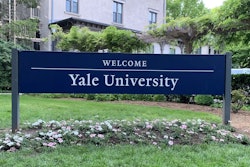The historically Black colleges and universities (HBCUs) that collectively received hundreds of millions of dollars as part of MacKenzie Scott’s wide-ranging philanthropy do not have to file compliance reports or explain to Scott how they will use those funds.
The unrestricted nature of the gifts has some observers, both supporters and skeptics, asking, "What about accountability?"
According to some scholars and experts in the area of academic leadership and philanthropy, the institutions need to be held accountable — not to Scott or her team, but they should seek input from and report back to their community of stakeholders.
“I would approach it from the standpoint of shared governance,” says Dr. Alvin J. Schexnider, a former chancellor of Winston-Salem State University in North Carolina and author of Saving Black Colleges. “I would want to involve the stakeholders. These are the folk who are closest to the academy and they have a sense of where the funds are needed.”
 Dr. Alvin J. Schexnider
Dr. Alvin J. Schexnider
Rob Henry, vice president of development, culture and talent at the Council for Advancement and Support of Education (CASE), also views the role of stakeholders as critical in the application of unrestricted philanthropic gifts.
“We have to create a framework for how the gifts can be used,” he says, adding, “that’s where our stakeholders can help because they become the sounding board for the university. They help to define and establish the framework; they help hold the university accountable.”














